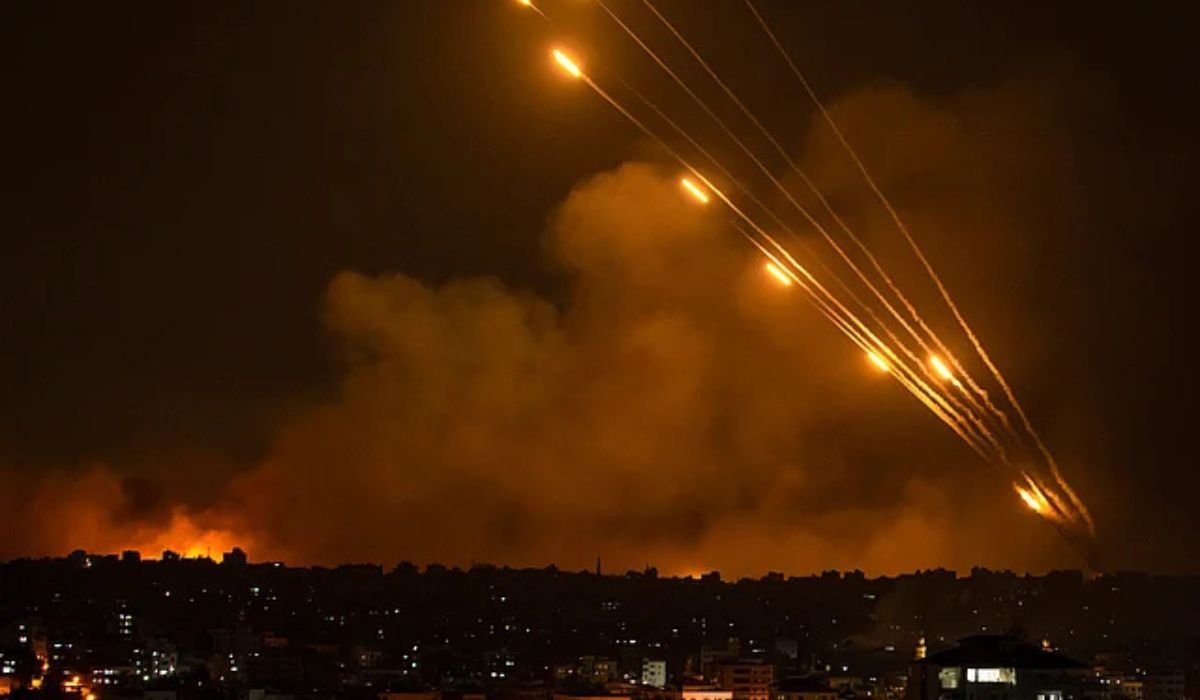The conflict between Israel and Iran has now entered its seventh day, characterized by intense military engagements and significant casualties.
The hostilities began when Israel launched preemptive airstrikes on more than a dozen Iranian targets, including vital nuclear facilities, scientists, and military commanders, as part of an operation named Rising Lion. Israel’s goal was to prevent Iran from acquiring nuclear weapons, which it views as a dire existential threat.
In response, Iran has carried out multiple ballistic missile and drone attacks on Israeli cities, striking both military and civilian locations. Reports indicate that Israeli strikes on Iran have caused over 240 deaths, including 70 women and children, while Iranian attacks on Israel have resulted in at least 24 fatalities.
Iranian Missile Hits Soroka Hospital in Beersheba
A ballistic missile fired by Iran struck the Soroka Medical Center in Beersheba, southern Israel, severely damaging a surgical building. Serving over a million residents from diverse communities, the hospital had evacuated most patients beforehand due to warnings, resulting in only minor injuries for several individuals. Emergency responders were seen dealing with smoke rising from the damaged facility.
Injuries from Iranian Missile Attacks
At least 240 people were reported injured from the missile barrage across Israel, with most sustaining minor wounds. Over 70 of those injured were affected by the strike on Soroka Hospital. Four people suffered serious injuries, according to the Israeli Health Ministry.
Israeli Airstrike on Iran’s Arak Heavy-Water Reactor
The Israeli Defense Forces (IDF) conducted an airstrike on Iran’s partially constructed heavy-water research reactor in Khondab, known as Arak. Iranian officials confirmed the facility had been evacuated before the attack and assured there was no radiation risk. Iran had notified the UN nuclear watchdog that the reactor was scheduled to become operational in 2026. Additional strikes targeted centrifuge production and weapons manufacturing facilities.
IDF Reports Major Damage to Iranian Missile Systems
Brigadier General Effie Defrin, IDF spokesperson, stated that Israel had destroyed approximately two-thirds of Iran’s missile launchers. Despite this, Iran reportedly still maintains over 100 launchers. The ongoing conflict has seen Iran fire more than 450 ballistic missiles and hundreds of drones at Israeli targets, both military and civilian.
India Plans Evacuation of Citizens from Israel
India announced efforts to evacuate its nationals trapped in Israel, following the launch of ‘Operation Sindhu’ aimed at repatriating citizens from Iran. The Ministry of External Affairs stated that Indian citizens wishing to return from Israel would be assisted under the same operation, with evacuation carried out via land routes from Israel and subsequent air travel back to India.
Israel’s Defence Minister Calls for Elimination of Khamenei
Israel’s Defence Minister Israel Katz declared that Iran’s Supreme Leader, Ayatollah Ali Khamenei, “can no longer be allowed to exist” following the missile strike on Soroka Hospital. Speaking near Tel Aviv, Katz accused Khamenei of personally directing attacks on civilian targets and described him as a direct threat to Israel’s survival. Earlier reports suggest that American pressure had prevented Israel from targeting Khamenei previously.
Iran Accuses UN Nuclear Watchdog of Bias
Iran’s Foreign Ministry spokesperson Esmaeil Baqaei condemned the International Atomic Energy Agency (IAEA) for alleged partiality and collaboration with Israel. This criticism came after the IAEA released a report accusing Iran of breaching nuclear obligations shortly before the conflict erupted. Iran accused the agency of supporting Israel’s “war of aggression.”
Iran and Kremlin Warn Against US Intervention
Iran’s Deputy Foreign Minister Kazem Gharibabadi warned that Tehran has “all necessary options” if the United States intervenes militarily to support Israel. He urged the US to maintain neutrality to avoid Iranian retaliation. The Kremlin also cautioned that US military involvement could lead to a “terrible spiral of escalation.”
US Moves Military Assets for Protection
The US military relocated aircraft and naval vessels stationed at Al Udeid Air Base in Qatar and a Bahrain port hosting the US Navy’s 5th Fleet to safer locations to avoid possible Iranian attacks. Officials described these actions as routine force protection measures. President Donald Trump has yet to decide on directly joining Israel’s campaign, though he is reportedly under pressure to deploy bunker-busting bombs against Iran’s underground nuclear sites.
Iran’s Missiles More Advanced Than Previously Known
Israeli military officials revealed that Iran used missiles equipped with multiple warheads in recent attacks, complicating Israel’s air defense efforts. Unlike single-warhead missiles, those with multiple warheads pose a greater challenge for interception systems like Israel’s Iron Dome.
You Might Also Like:- Iran-Israel Conflict Escalates: Missile Strikes, Cyber Attacks
